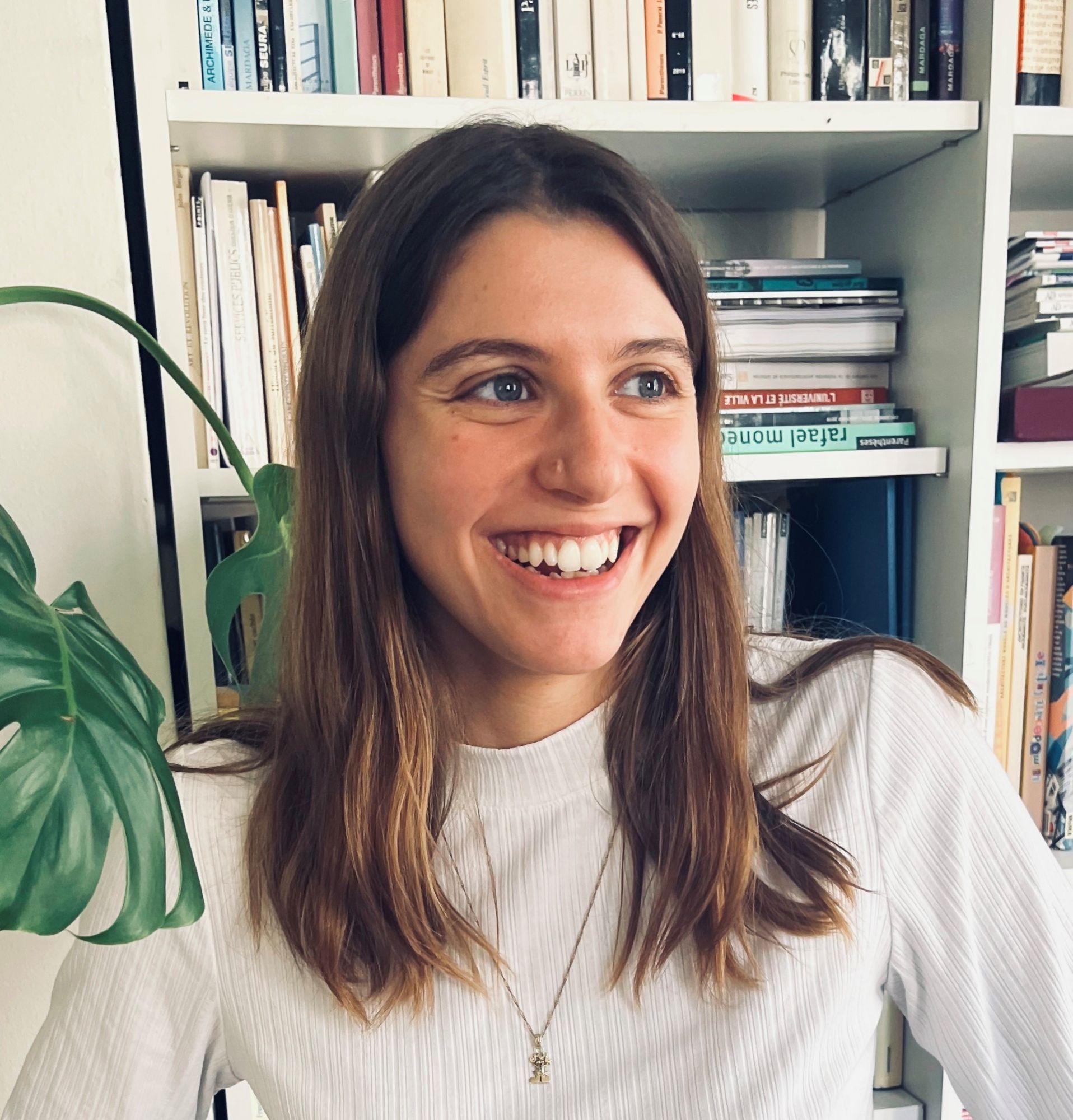- Home
- EN
- Our impact
- ProspeKtive
- The key to temporal well-being in the face of urban saturation?

The key to temporal well-being in the face of urban saturation?
January 2024
Expert
In a context where material needs are generally satisfied, the desire for immaterial goods is increasing (Inglehart 2000). This includes free time, which can be managed autonomously, as the current debate on the four-day week underlines.
And yet, in order to achieve a good level of 'temporal well-being', we need much more than free time. How does it influence our perception of the living environment, and what are the determinants of this perception - particularly in cities, where the pace can seem more intense (Faburel and Girault 2020), where the "saturation" of agendas is accompanied by other phenomena of saturation of spaces, infrastructures and our senses.
The challenge of urban quality of life
Let's assume that the various saturation phenomena identified contribute to the loss of attractiveness of dense urban centers, and thus to the phenomenon of "urban sprawl" (Marie et al. 2022:17). Yet their density and mix are globally considered beneficial from a sustainable development perspective (IPCC -:2.6; United Nations, Department of Economic and Social Affairs, and Population Division 2019), enabling a wide diversity and offer of amenities in proximity and often with longer time slots (e.g. Guez et al. 2018). The perception of more intense temporal saturation in the city seems paradoxical in this context.
Our doctoral research addresses both this paradox of temporal well-being in the city [1] as well as the influence of the level of 'temporal well-being' on our perception of daily saturations. What if temporal well-being were one of the levers enabling us to contribute to an attractive urban life while maintaining the model of the dense, mixed city?
The temporal dimension of well-being
The notion of 'temporal well-being' has been widely used in public policy in Germany, for example, since the 1990s: der Zeitwohlstand. The concept has not yet been theorized (Reisch 2002). The German term 'Wohlstand' refers to a comfortable standard of living with economic security (Duden n. d.), often translated as 'prosperity' in French (Larousse n. d.). Sociologist Jürgen Rinderspacher emphasizes the shift from material prosperity to intangible and social goods - including time - around the 1980s (Rinderspacher, 2002). In the interests of a qualitative understanding of time, the translation "temporal well-being" seems more appropriate: "a general feeling of pleasure, of fulfillment that comes from the full satisfaction of the needs of the body and/or mind" (CNRTL n. d.).
Various research studies have helped to identify the determinants of temporal well-being. Five criteria are recurrent (e.g. Geiger et al. 2021; von Jorck et al. 2019; Mullens and Glorieux 2020; ReZeitKon 2021; Rinderspacher 2002):
- appropriate quantity and quality of free time (Mullens and te Braak 2023)
- appropriate time per activity (Rosa 2005, 2018)
- sufficient autonomy to follow one's own pace
- coordination of individual and collective time (synchronization with loved ones or desynchronization at peak times)
- sufficient planning and predictability on a life-course scale (Garhammer 2002).
As the research cited above focuses on the temporal axis of well-being, it cannot take into account the spatial context of interlocutors, such as their place(s) of work or residence. Such a holistic approach requires a spatio-temporal analysis method that takes into account daily rhythms and constraints, while considering the specific environment. This is the aim of our current research.
A plea to question our times as well as our space
We advocate questioning our daily times and rhythms just as much as we do our living and working spaces. Even if time often appears to be an "external" constraint of a normative nature (Tabboni 2006), and its organization requires the collaboration of a large number of actors, this does not necessarily distinguish it from the organization of space.
The world of work, as a major organizer of our time (quantity of free time and mobility, autonomy constraints, etc.), has great potential in terms of temporal well-being. So let's keep experimenting and debating how to design our workplaces and times as sources of well-being.
[1] potentially linked to the "Time Rebound" phenomenon (Erdmann, Cuhls, and Priebe 2022; Geiger et al. 2021), also described as the "acceleration cycle" (Rosa 2018).
References
CNRTL. s. d. « BIEN-ÊTRE : Définition de BIEN-ÊTRE ». Consulté 16 janvier 2024 (https://www.cnrtl.fr/definition/bien-%C3%AAtre).
CNRTL. s. d. « BIEN-ÊTRE : Définition de BIEN-ÊTRE ». Consulté 16 janvier 2024 (https://www.cnrtl.fr/definition/bien-%C3%AAtre).
Duden. s. d. « Wohlstand - Rechtschreibung, Bedeutung, Definition, Herkunft ». Consulté 5 janvier 2024 (https://www.duden.de/rechtschreibung/Wohlstand).
Erdmann, Lorenz, Kerstin Cuhls, et Max Priebe. 2022. « Die Beschleunigung des Alltags durch den Zeit-ReboundEffekt und dessen Auswirkungen auf den Klimawandel ». juillet, 3‑6.
Faburel, Guillaume, et Mathilde Girault. 2020. « L’environnement comme temporalisation subjective des périphéries ». P. 179‑94 in Saturations: individus, collectifs, organisations et territoires à l’épreuve. Grenoble: Elya.
Garhammer, Manfred. 2002. « Zeitwohlstand und Lebensqualität - ein interkultureller Vergleich ». P. S. 165-205 in Zeitwohlstand: ein Konzept für einen anderen Wohlstand der Nation, Forschung aus der Hans-Böckler-Stiftung. Berlin: Edition Sigma.
Geiger, Sonja M., Jan-Philipp Freudenstein, Gerrit von Jorck, Stefanie Gerold, et Ulf Schrader. 2021. « Time Wealth: Measurement, Drivers and Consequences ». Current Research in Ecological and Social Psychology 2:100015. doi: 10.1016/j.cresp.2021.100015.
Guez, Alain, Alessia de Biase, Frederica Gatta, et Piero Zanini. 2018. Exploration chronotopique d’un territoire parisien. Paris: Laa recherche.
Inglehart, Ronald F. 2000. « Globalization and Postmodern Values ». The Washington Quarterly 23(1):215‑28.
IPCC. -. Climate Change 2022 - Mitigation of Climate Change. Summary for Policymakers. Working Group III contribution to the Sixth Assessment Report of the Intergovernmental Panel on Climate Change.
von Jorck, Gerrit, Stefanie Gerold, Sonja M. Geiger, et Ulf Schrader. 2019. Zeitwohlstand. Arbeitspapier zur Definition von Zeitwohlstand.
Larousse. s. d. « Traduction : Wohlstand - Dictionnaire allemand-français Larousse ». Consulté 9 janvier 2024 (https://www.larousse.fr/dictionnaires/allemand-francais/Wohlstand/326741).
Marie, Jean-Baptiste, Hélène Milet, Nicolas Maisetti, et Eva Simon. 2022. « “Exode urbain : un mythe, des réalités” - présentation des résultats » édité par Plan Urbanisme Construction Architecture.
Mullens, Francisca, et Petrus te Braak. 2023. « Exploring the effect of different time use and leisure time characteristics on subjective time pressure ». P. 197‑218 in Time reveals everything. ASP editions - Academic and Scientific Publishers.
Mullens, Francisca, et Ignace Glorieux. 2020. « Not Enough Time? Leisure and Multiple Dimensions of Time Wealth ». Leisure Sciences 1‑21. doi: 10.1080/01490400.2020.1805656.
Reisch, Lucia A. 2002. « Ist das Thema Zeitwohlstand theoriefähig? Plädoyer für einen theoriegeleiteten Zeitwohlstandsdiskurs ». P. 37‑57 in Zeitwohlstand: ein Konzept für einen anderen Wohlstand der Nation, Forschung aus der Hans-Böckler-Stiftung. Berlin: Edition Sigma.
ReZeitKon. 2021.« Abschlusstagung: Zeit und Nachhaltigkeit », octobre 7, online-Konferenz.
Rinderspacher, Jürgen P., éd. 2002. Zeitwohlstand: ein Konzept für einen anderen Wohlstand der Nation. Berlin: Edition Sigma.
Rosa, Hartmut. 2005. Beschleunigung: die Veränderung der Zeitstrukturen in der Moderne. 1. Aufl. Frankfurt am Main: Suhrkamp.
Rosa, Hartmut. 2018. Beschleunigung und Entfremdung: Entwurf einer kritischen Theorie spätmoderner Zeitlichkeit. 6. Auflage. Berlin: Suhrkamp.
Tabboni, Simonetta. 2006. Les temps sociaux. Paris: A. Colin.
United Nations, Department of Economic and Social Affairs, et Population Division. 2019. World Urbanization Prospects: The 2018 Revision. Vol. ST/ESA/SER.A/42. New York: United Nations.
Release date: January 2024




